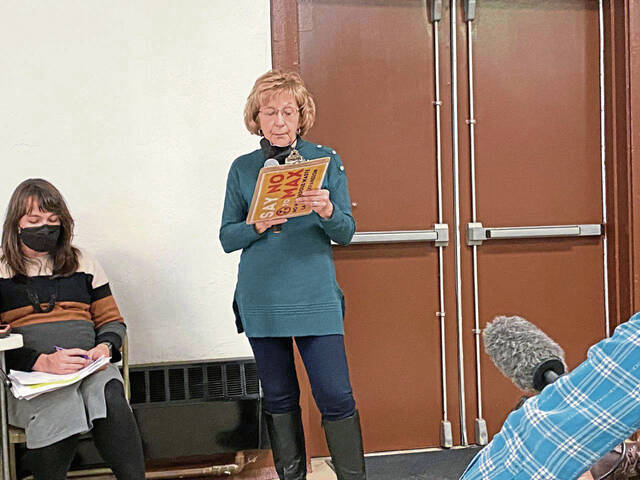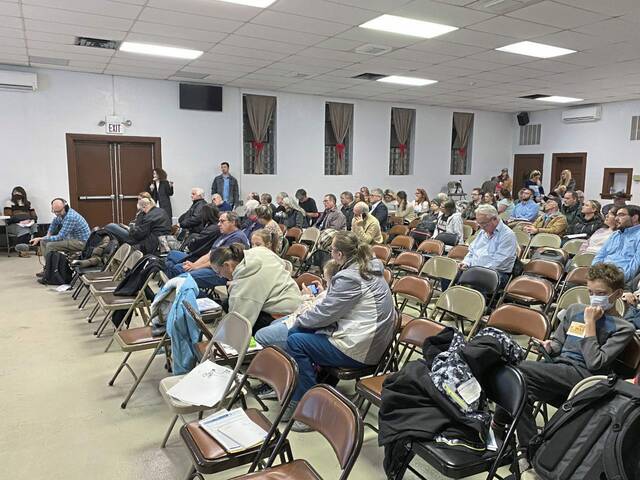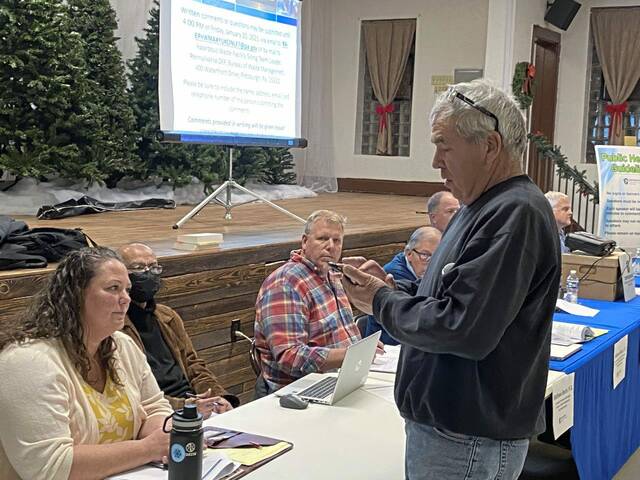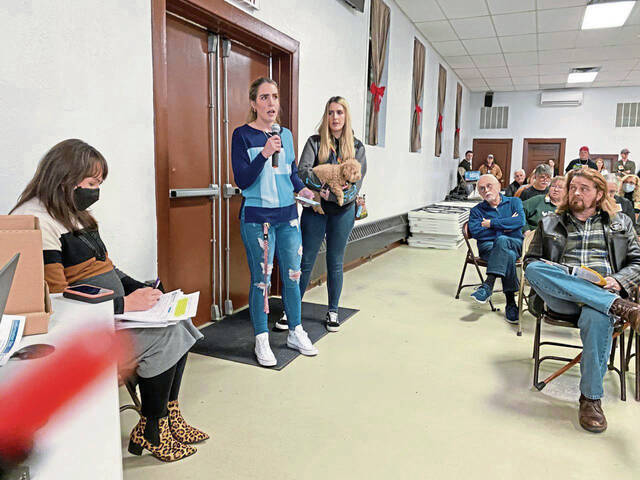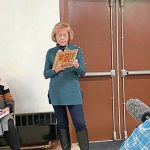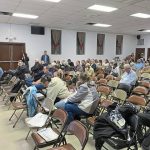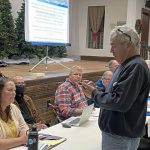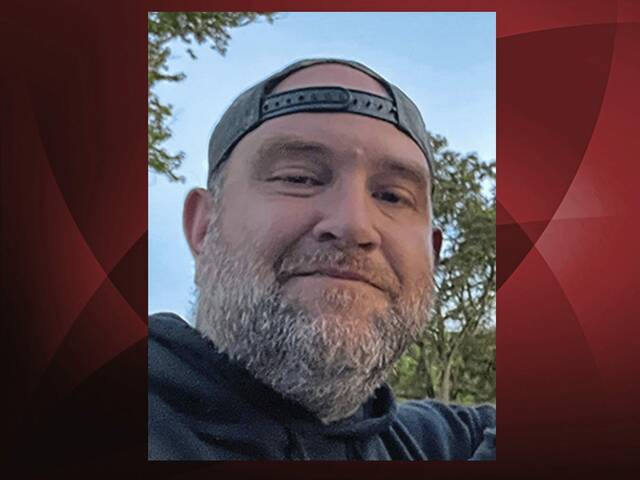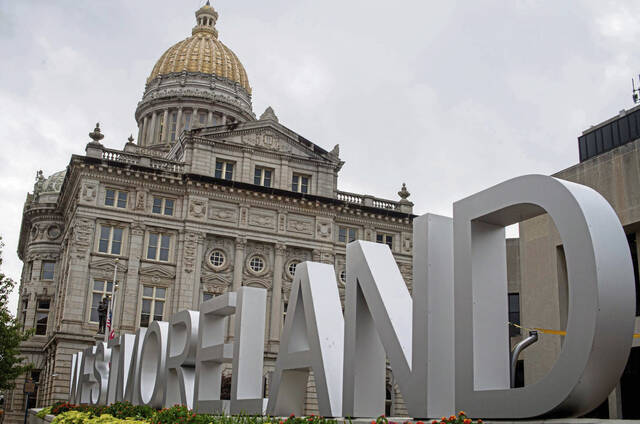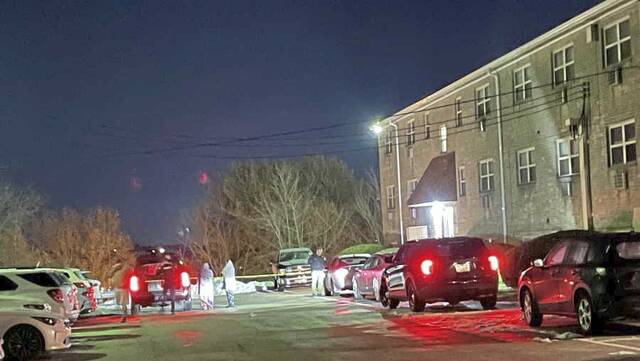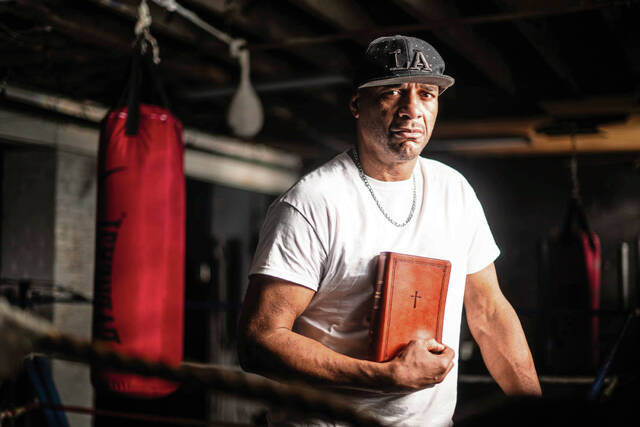State environmental regulators repeatedly heard the same message from about 20 Yukon area residents and environmentalists regarding a landfill operator’s plans to build a 1 million ton hazardous waste dump site: Deny the permit on grounds of potential dangers to the community’s health and safety.
“You see the dust fly through the air. We’re half afraid to drink the water from the tap,” said Rose Dzubak of Milbell Road, Yukon, who was one of about 20 speakers to testify at the 2½-hour session that the Department of Environmental Protection held Thursday at Yukon Fire Hall in South Huntingdon.
The proceedings, with about six DEP waste management officials, focused on MAX Environmental Technologies Inc.’s application for a permit to build a 14-acre landfill where hazardous waste would be dumped at a site between Milbell Road and Sewickley Creek. The bulk of the company’s 159-acre site, including its existing landfills, is between Spring Street and Milbell Road.
A new landfill could cost between $15 million and $17 million and would replace an existing impoundment that is near the end of its lifespan, the company has said. The new area could expand operations at the facility for additional 10 years.
MAX Environmental Technologies, based in Green Tree and owned by a Connecticut-based private equity firm, is proposing to build what would be the state’s first hazardous waste landfill, with the operator able to dump hazardous materials without treating them with chemicals to render them nonhazardous, said William Mura, environmental engineering manager for DEP. If the site is approved for a landfill, the application would undergo another phase of review by the state. Currently, there is no timeline for that process.
Thomas Krance of Yukon pointed out the history of environmental violations by MAX Environmental and its predecessor landfill operator, Mill Service, as a reason for rejecting the permit.
“If you believe in these people (MAX Environmental) DEP, you believe in Santa Claus,” Krance said.
The past history of MAX’s violations can be considered by DEP in its review of the application, but is not a reason for rejecting the application, said Thomas Mellot, division manager for DEP’s hazardous waste management. Among the reasons the application can be rejected are for the dump’s impacts on the water supply, location in a floodplain, wetlands impact and proximity to farm areas and oil and natural gas areas.
Diana Steck of North Huntingdon, a former Yukon resident who was a leader of a citizens activist group opposing the landfill, said she and her family have “had a plethora of medical issues,” including asthma, breathing problems, hepatitis and muscle weakness and myasthenia gravis.
“We believe the exposure to toxic waste pits led to the (health) problems,” Steck said.
Several residents repeatedly pointed to a 2015 South Huntingdon ordinance that prohibits any business from dumping or storing waste within 900 feet of an occupied residence as reason for the DEP to deny the request for a permit. Nine homes are within 900 feet of the proposed site.
The criteria for the environmental review processes for the permit does not take into account the proximity of residences to the landfill, according to DEP officials at the hearing.
Edward Stokan, assistant counsel for the department’s Southwest Region in Pittsburgh, told the audience he does not think the state review criteria “can supersede a local ordinance.”
While acknowledging that he was aware of South Huntingdon’s ordinance, Carl Spadaro, environmental general manager for MAX Environmental Technologies Inc., said after the proceedings he believes that the regulations under which the DEP reviews the request would supersede any township regulation.
But, South Huntingdon solicitor Chris Huffman said after the meeting the ordinance would be pertinent to MAX Environmental’s request.
Unlike the company’s existing operation, which is close to homes along the Spring Street entrance to the landfill, the new site could not be granted protection from enforcement of the ordinance by a “grandfather clause” in legal proceedings, Huffman said.
Addressing the issue of untreated hazardous waste being dumped at the new site near Sewickley Creek, Spadaro said after the meeting that most of the hazardous waste would be chemically treated inside the facility to render it nonhazardous before being dumped.


